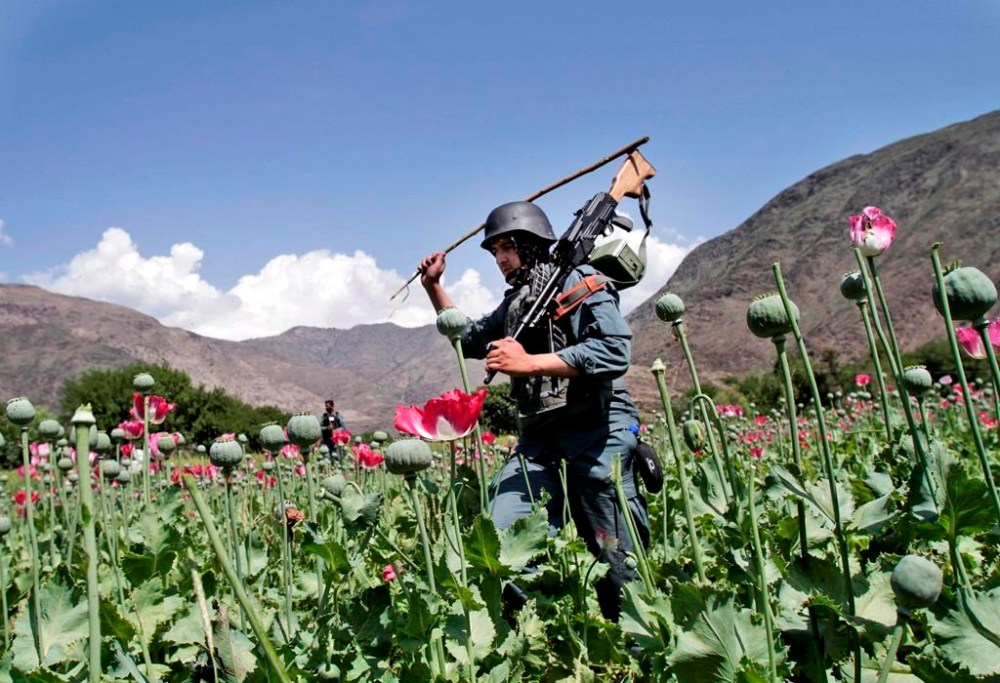Afghan farmers lose income of more than $1 billion after the Taliban banned poppy cultivation
Advertisement
Read this article for free:
or
Already have an account? Log in here »
To continue reading, please subscribe:
Monthly Digital Subscription
$0 for the first 4 weeks*
- Enjoy unlimited reading on winnipegfreepress.com
- Read the E-Edition, our digital replica newspaper
- Access News Break, our award-winning app
- Play interactive puzzles
*No charge for 4 weeks then price increases to the regular rate of $19.00 plus GST every four weeks. Offer available to new and qualified returning subscribers only. Cancel any time.
Monthly Digital Subscription
$4.75/week*
- Enjoy unlimited reading on winnipegfreepress.com
- Read the E-Edition, our digital replica newspaper
- Access News Break, our award-winning app
- Play interactive puzzles
*Billed as $19 plus GST every four weeks. Cancel any time.
To continue reading, please subscribe:
Add Free Press access to your Brandon Sun subscription for only an additional
$1 for the first 4 weeks*
*Your next subscription payment will increase by $1.00 and you will be charged $16.99 plus GST for four weeks. After four weeks, your payment will increase to $23.99 plus GST every four weeks.
Read unlimited articles for free today:
or
Already have an account? Log in here »
Hey there, time traveller!
This article was published 05/11/2023 (752 days ago), so information in it may no longer be current.
ISLAMABAD (AP) — Afghan farmers have lost income of more than $1 billion from opium sales after the Taliban outlawed poppy cultivation, according to a report from the U.N. drugs agency published Sunday.
Afghanistan was the world’s biggest opium producer and a major source for heroin in Europe and Asia when the Taliban seized power in August 2021.
They pledged to wipe out the country’s drug cultivation industry and imposed a formal ban in April 2022, dealing a heavy blow to hundreds of thousands of farmers and day laborers who relied on proceeds from the crop to survive. Opium cultivation crashed by 95% after the ban, the report from the U.N. Office on Drugs and Crime said.

Until 2023, the value of Afghanistan’s opiate exports frequently outstripped the value of its legal exports. U.N. officials said the strong contraction of the opium economy is expected to have far-reaching consequences for the country as opiate exports before the ban accounted for between 9-14% of the national GDP.
Afghans need urgent humanitarian assistance to meet their most immediate needs, absorb the shock of lost income and save lives, said UNODC executive director, Ghada Waly.
“Afghanistan is in dire need of strong investment in sustainable livelihoods to provide Afghans with opportunities away from opium,” she said.
Afghans are dealing with drought, severe economic hardship and the continued consequences of decades of war and natural disasters.
The downturn, along with the halt of international financing that propped up the economy of the former Western-backed government, is driving people into poverty, hunger, and addiction.
A September report from the UNODC said that Afghanistan is the world’s fastest-growing maker of methamphetamine, with seizures of the synthetic drug increasing as poppy cultivation shrinks.
Lower incomes along the opiate supply chain could stimulate other illegal activities like the trafficking of arms, people or synthetic drugs, the most recent UNODC report said.

